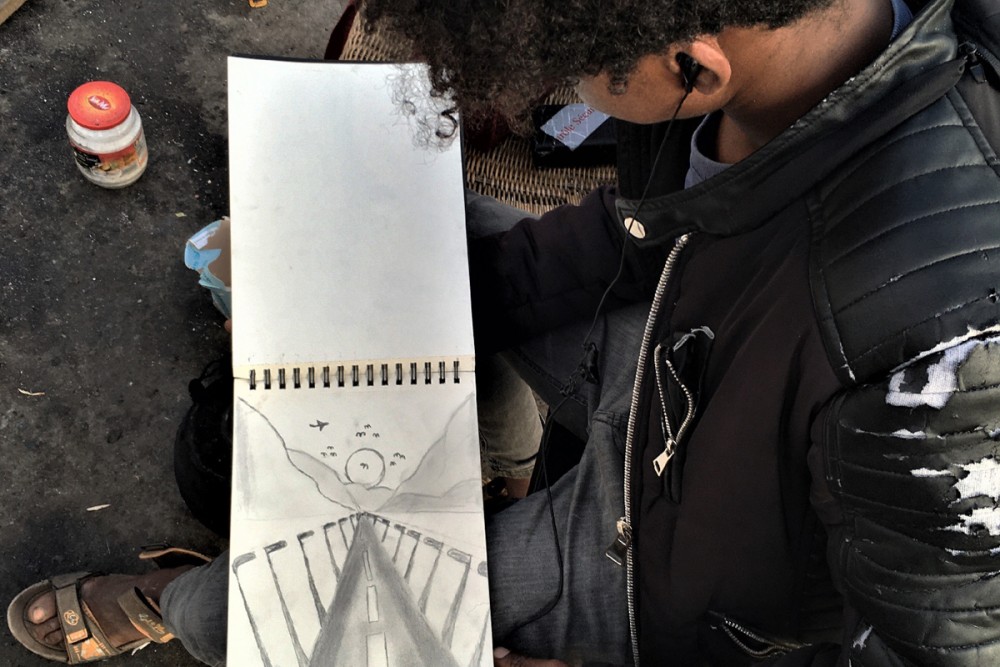
Hamid (Photo by Alex Holmes)
British photographer, writer, and volunteer Alex Holmes frequently spends his free time at the impromptu Eritrean refugee camp in Calais, France, where he talks with the young men gathered there. These men have escaped from what the Global Slavery Index calls the “highest prevalence of modern slavery across Africa (and the second in the world).” They are trying to get to the United Kingdom, where they believe there is hope for a better life. Constant police evictions and violence disrupt their daily lives. The text that appears with these photos is taken from Holmes’s notes and conversations over the last four years.
Fireside. Hamid is drawing. A broad highway tapers across the paper toward the mid-distant horizon. He uses the side of his phone to draw the tall walls that cut the road from the surrounding landscape. “Like here,” he says, pointing to the four-meter-high, UK-funded “security wall” beneath which the small Eritrean encampment nestles. “When I get to the UK, I will be an artist, or I will have a restaurant. That is my dream.”

Yusef escaped from Eritrea in a mass breakout. He walked six days with no food, no shoes, terrified he would be informed on if he knocked at a door to ask for help. He eventually made it home, only to be caught and imprisoned after a second failed attempt at escaping the country.





